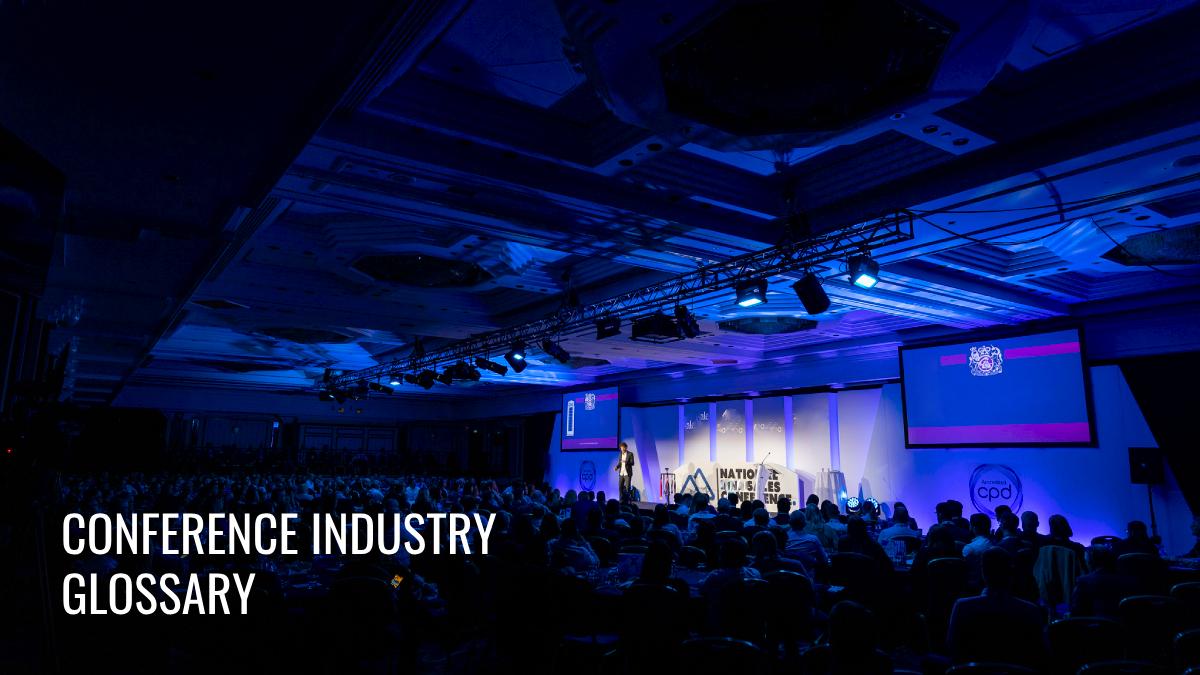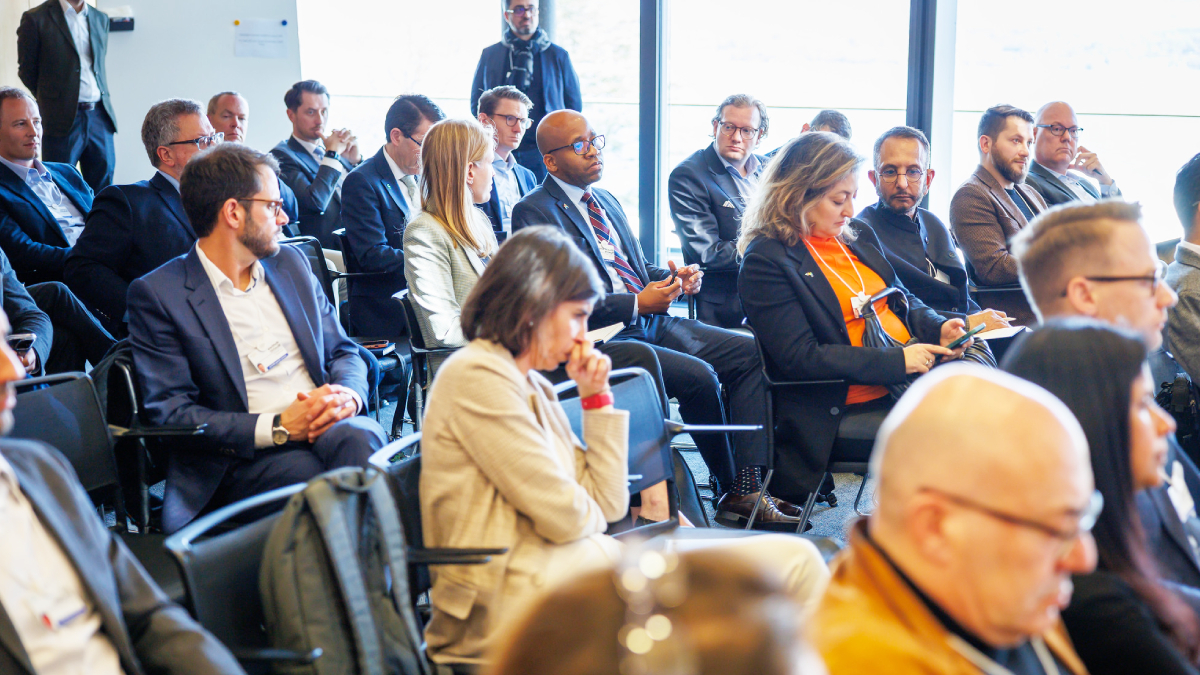The conferencing industry actively aims to promote communication and collaboration among individuals and groups, even when they are geographically separated. However, hybrid conferences integrate in-person and virtual features for distant and on-site participants, allowing for flexible work arrangements in conferencing. Many conferencing solutions link with different communication tools (phone, video, and messaging) on a single platform, improving productivity and user experience. Consequently, popular conferencing solution providers include Zoom, Microsoft Teams, Cisco Webex, and Google Meet. These platforms include video calls, screen sharing, chat, and document sharing. However, remembering all of the conference industry glossary terms may be tough. Here is a comprehensive list of important terms to familiarize yourself with in the conference industry.
Conference Industry Glossary: Key terms to know
| Terms | Description |
|---|---|
| Auditorium layout | A sitting arrangement, often known as “theatre style” is a conference space or hall with rows of chairs facing a stage or podium. The inner chairs face forward, while the outer chairs are slanted to provide a better view of the stage. |
| Air walls | Removable partitions in conference rooms enable event planners to build flexible areas that match their needs. In larger meetings, individuals can utilize them to smoothly manage multiple breakout spaces. |
| Banquet style layout | A seating layout for events, known as “pod” or “round set,” is ideal for sizable audiences like awards ceremonies or galas. This arrangement features round tables seating 8–10 guests each. |
| Boardroom style layout | A seating layout designed to facilitate conversation preferred for training or committee meetings, this seating arrangement sees delegates seated facing each other around a square, rectangle, oval, or round table. |
| Concurrent sessions | Concurrent educational meetings on diverse themes are frequently scheduled during major events. Attendees can choose the session or track that most closely matches their interests. |
| Co-host | With regards to online events via ZOOM; co-hosts can share most of the controls that the host has. For example, managing attendees. The host must assign a co-host during the meeting; the co-host cannot start a meeting. |
| Conference pack | To keep conference guests informed, distribute a conference pack that includes schedules, a venue map, and facilities information. Some events use apps instead of printed information. |
| Force majeure clause | This clause absolves the venue from liability if it can’t fulfil the agreement due to uncontrollable events like natural disasters. |
| Hybrid event | A conference, trade show, seminar, workshop or other meeting that combines a live, in-person audience with a virtual, online audience. |
| Infrastructure | A centralised suite of services, for example, streaming, recording, firewall traversal, bridging and mobile support. Infrastructure can be either on-premise (hardware or virtualised) or hosted in the cloud. |
| Installation & dismantle (I&D) | The process of preparing equipment for an event (setup) and taking apart that equipment after the event (take down). |
| Live streaming | A type of streaming in which audio or video is broadcast live over the Internet. As it transmits, the media allows viewers to watch or listen to it in real-time. |
| Multiple video conference | A video call that allows multiple attendees to join a single virtual meeting room. |
| Web conference | Web services that allow participants to join online meetings via browsers enable interactive web conferences, which stimulate interaction beyond the one-way communication of webcasts. |
| Webinar | A web-based seminar, often called a webcast, lacks a specific technical definition but typically refers to an online presentation, sometimes featuring interactive elements from a web conference. |
A conference is a difficult undertaking that requires careful organisation, coordination, and execution to achieve success. As a result, having the correct conference industry glossary facts and terms is crucial. Remember that organising a conference needs attention to detail, efficient communication, and the capacity to react to unanticipated changes. It takes a collaborative effort comprising accurate planning and execution to ensure a beneficial and memorable experience for all participants.
Conference Equipment Rental
Conferences are a wonderful platform for delving extensively into a topic, such as the operations of your organisation. They let you have real-time conversations with people from all around the world, whether online or in person. If you have any upcoming 2023 BRICS annual Summit conference activities, our knowledgeable staff at Conference Equipment is here to help.
Conference Equipment specialises in the leasing of simultaneous interpretation equipment (booths, sound systems), audiovisual, and sound multimedia equipment for conferences and events. We provide high-quality event and conference equipment to help you make an excellent impact on your audience. To ensure a seamless webinar, we supply an onsite technician or operator.
We have years of experience serving thousands of consumers at events and webinars around South Africa, including Johannesburg and Pretoria. As a result, you may rely on our services and equipment for your conference.
Contact us for more information regarding our services. Email: info@conference-equipment.co.za | Website: www.conference-equipment.co.za







Leave A Comment